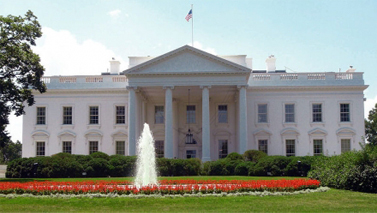by Adam Kredo • Washington Free Beacon
Agencies across the federal government reported at least 37 leaks of classified information in 2016, more than double the number of criminal leaks reported in 2015, according to new information from the Department of Justice that highlights the government’s inability to crack down on this illegal behavior.
The unauthorized disclosure of highly classified information has received renewed attention in recent weeks following what the Washington Free Beacon first described as a targeted campaign against Trump administration officials by Obama administration loyalists still operating inside the government. Sources in and out of the White House said this campaign began in late 2016, before Obama left office.
The ouster of former national security adviser Michael Flynn—who saw transcripts of his private phone conversations intercepted by the U.S. intelligence community leaked to newspapers—is believed to have been a central part of this campaign.
The Free Beacon reported earlier this week that a new series of leaks targeting senior White House adviser Sebastian Gorka is part of the campaign aimed at undermining President Donald Trump’s national security apparatus.
Leaks of classified information are not a new problem. The U.S. government has been struggling for years to prevent highly classified materials from becoming public.
A review of Justice Department records from 2015 found that executive branch agencies reported at least 37 cases in which classified information was leaked in a criminal manner, according to a memo issued in the wake of a Freedom of Information Act request by the Federation of American Scientists, or FAS.
“We have conducted a search of the Counterintelligence and Export Control Section. A records search of that Section indicates that 37 crime reports concerning unauthorized disclosures of classified information were received by DOJ in CY 2016,” the memo states.
This may account for just a small percentage of total leaks due to information restrictions put in place by Congress. The number of leaks in 2016 doubled that of 2015. However, it is only slightly above the average number of classified leaks reported in the last five years.
The FAS maintains that the consistent number of leaks demonstrates the government’s inability to crack down on the release of highly classified information, despite orders from the Obama and Trump administrations.
“What makes the latest number of reported leaks interesting is not that it deviates sharply from past experience but that it does not,” FAS wrote in a commentary on the Justice Department memo. “Evidently there is a baseline of leakiness that persists even in the face of strenuous official efforts to combat leaks.”
A review of Flynn’s phone calls with Russian officials that occurred prior to his official employment in the White House found no evidence of wrongdoing.
It is believed that Obama administration holdovers still operating within the government are passing classified information to the media in order to undermine the newly formed Trump White House.
Rep. Devin Nunes (R., Calif.), chair of the House Intelligence Committee, told reporters Tuesday that lawmakers should be doing more to hold leakers accountable.
“There’s been major crimes committed,” Nunes was quoted as saying. “What I’m concerned about is no one is focusing on major leaks that have occurred here.
“We can’t run a government like this,” Nunes said. “A government can’t function with massive leaks at the highest level.”
